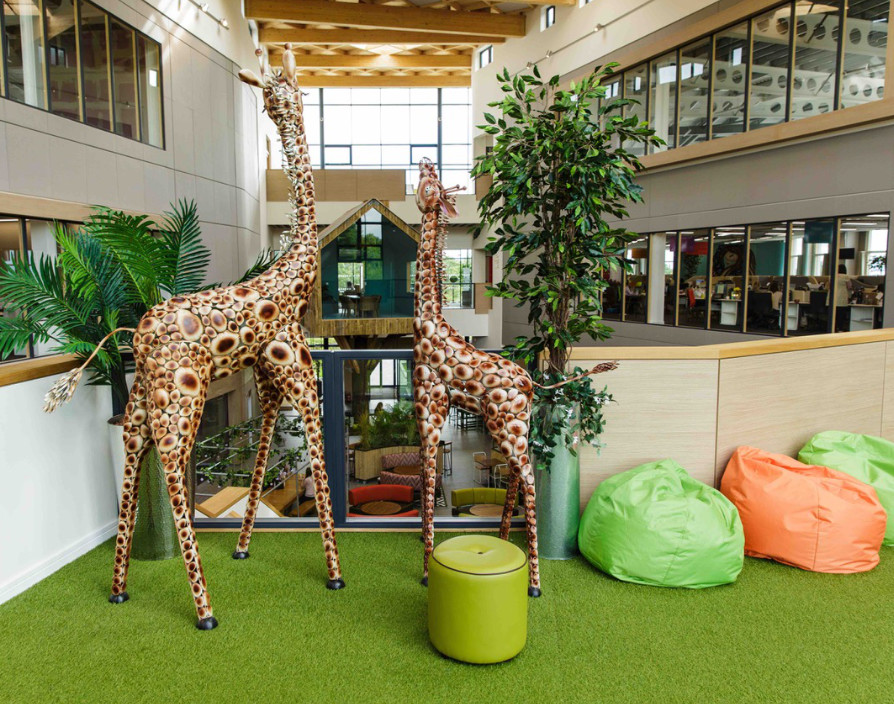Working outside of the office has more than doubled in the past decade (and that was well before the current pandemic affecting the world). But is it possible to sustain a positive company culture with a remote team?
When you read articles related to company culture, the name that will, inevitably taunt you as the shining beacon to behold is tech giant, Google – one of the world’s most valuable brands with millions to spend on employees.
You could dismiss them as irrelevant to you as the SME business owner. Or, you could ask the billion-dollar question: How has Google become consistently named as one of the best places to work in the USA, and – here is the ultimate quest – how is it universally loved by its employees?
Simple. Google’s leaders have successfully created a company where staff actually enjoy being. When my sister, Rachel, and I set up Moneypenny 20 years ago we made ourselves a promise: to create a company where we ourselves would want to work. It wasn’t a complex strategy; it wasn’t even particularly complicated, but we soon realised that it was extremely powerful. We had, whilst drinking endless cups of coffee at our kitchen table, put our workplace culture at the centre of our business.
That is all well and good. Now, we just had to make it become a reality…
Aptitude versus attitude
Not long after we founded Moneypenny we hired our first employee. It didn’t go well. Until then we hadn’t realised quite how much impact the right – or wrong – person can have on your company. As an entrepreneur, you can create the most inspiring company in the world, but if your team doesn’t share those same values this ethos will soon disappear.
From that day on instead of focusing on aptitude, we switched our attention to attitude and our office began to fill with incredible, glass half-full people. Attitude is a key part of what it looks for in a potential employee – one that will perfectly match its culture. So, take some time on this – ask what attributes are most important to you, and to your business. If you don’t shape your company culture, it will inevitably shape itself – and you might not like what you end up with.
The fun factor
We’ve all seen pictures of Google’s headquarters – The Googleplex – with their slides and sleep pods. They’re amazing. As adults we spend over half our lives at the office so making work a place your staff actually want to go is a no-brainer.
Rachel and I consciously set out to do this from day one. We have a pretty special HQ complete with our own pub and treehouse; and in terms of events there’s always something going on from bungee-jumping to baking. What’s more, fun doesn’t have to cost the earth. Sometimes the best ideas are borne from getting a little creative.
Brilliant people do brilliant things
Your employees are brilliant. That’s why you hired them. And brilliant people thrive when they’re given the freedom to do brilliant things. Google knows this, that’s why it took the decision to create what it calls ‘20% time’ – giving employees the chance to pursue other projects. An initiative that’s led to the creation of products like Gmail no less.
Listen to your employees. Ours never fail to blow us away and we’ve gone on to implement many of the ideas they have come up with. To encourage these ‘light bulb’ moments we set up a suggestions box. A simple way for staff to submit ideas as and when they strike. The best then receives an award and a plaque on our ‘wall of fame’. In our experience, employees work hard to gain your trust, and in almost all instances will surpass your expectations if given half a chance. As Laszlo Bock, Google’s Head of People Operations, said: “if you give people freedom, they will amaze you.”
One big family
This is an important one. Employees who feel like they have a stake in your company have a real incentive to contribute to its success. That drive and energy is infectious.
Our receptionists are the lifeblood of our organisation. Without them we wouldn’t be where we are today. We know that and we tell them – loud and often. As a business we rely on the close working relationships that they establish with our clients. We trust them to be amazing and they are. It’s this trust that makes them feel part of the family, and in turn, valued and engaged.
So, what does this all have to do with remote working? How can these four ‘Lessons from the Google Gods’ be applied remotely? Well, in these unprecedented times [check publication and latest news for tenses etc] we’ve found ourselves having to adapt to the new challenge of remote working rather quickly. And one thing we were adamant to focus on was keeping the Moneypenny culture thriving.
Never before have these four tenets of our business been so integral to what we do, and continue to do, in order to ensure strong communication and collaboration. Our teams are having to work a little differently, yes, to stay connected, productive and remain engaged with company goals. However, our answer has been technology and creative thinking.
When we were office bound we already used a range of digital tools and tech to help us stay on top of our game, and, being a self-confessed lover of all things tech, I am thrilled to report that they have really come into their own as we switched to 100% remote working.
Workplace by Facebook has allowed us, as a team across two continents, to stay in the loop, engaged with the Moneypenny vision and recognised for hard work and achievements. That hasn’t changed. Our teams continue to share birthdays (currently we are pooling our funds for a big birthday tea bash when we all return to the office), pictures of their pets and new mum advice mixed in with lockdown survival tips and, I believe that it is making us more productive and maintaining momentum even in these difficult times. There’s even a company-wide Through the Keyhole-style; who’s workspace is this competition running at the moment…
Keeping connected and communicating in our smaller teams and larger groups, is essential. As well as Workplace we also have been replacing in-person, internal and external, meetings with video calls, allowing us to have deeper conversations and discussions just like we would in the office.
At the time of writing, we are only two weeks into this remote way of working so I do not pretend to have all the answers. What I can share is that we are finding that the culture we placed at the heart of what we do and have built the business around, is really showing its true colours.
Culture is a mindset. It is not spatially bound. The company values that you have identified in your employees and positively encouraged in your treatment of them are not limited to the office. The values that you have invested in don’t all of a sudden go out of the window when your team works from home or the local café (when they reopen).
Share via:


















































